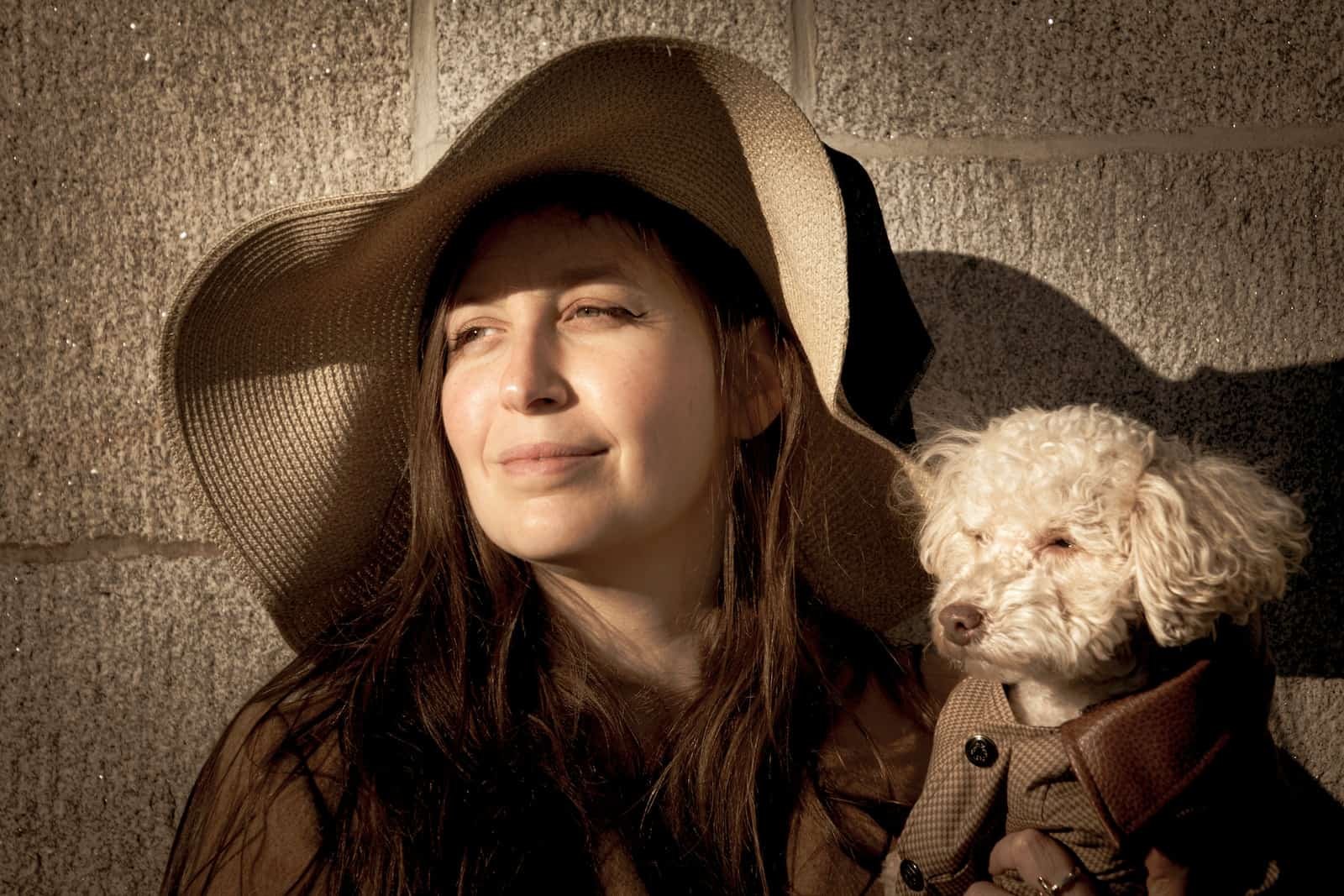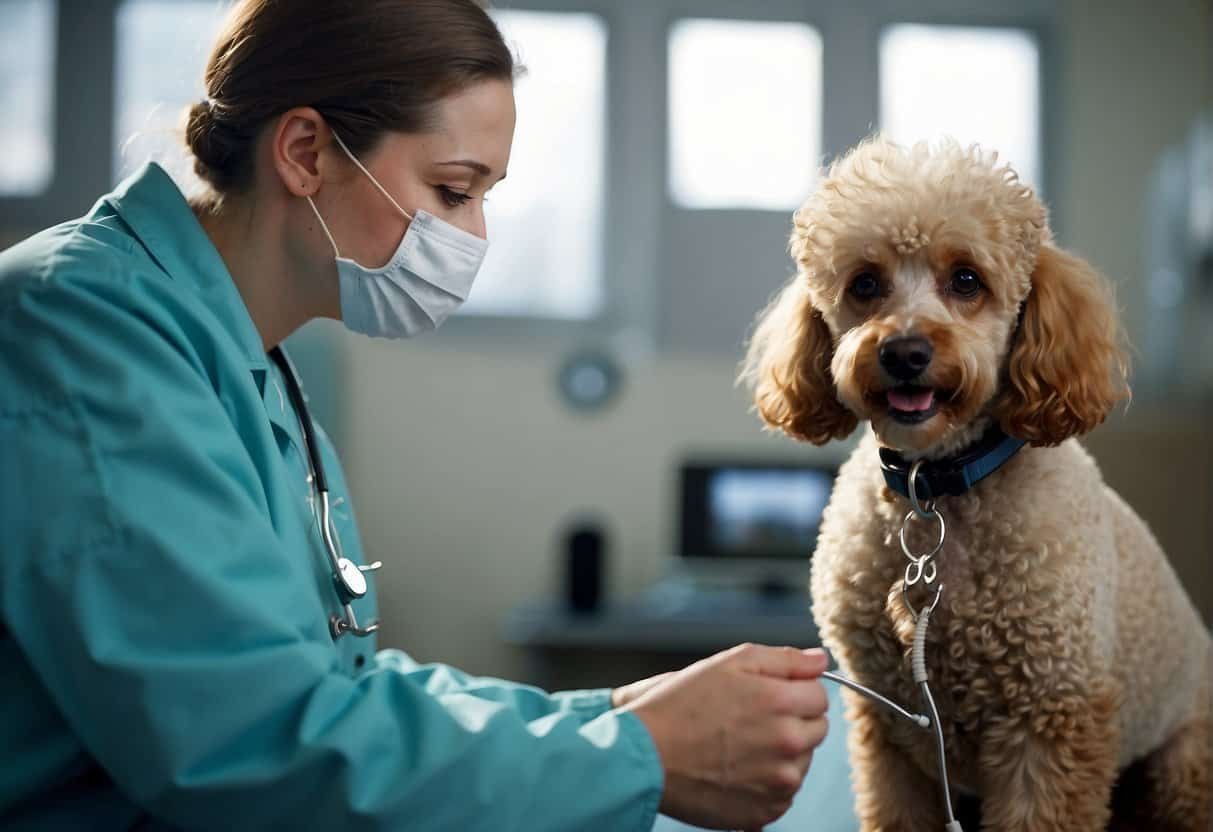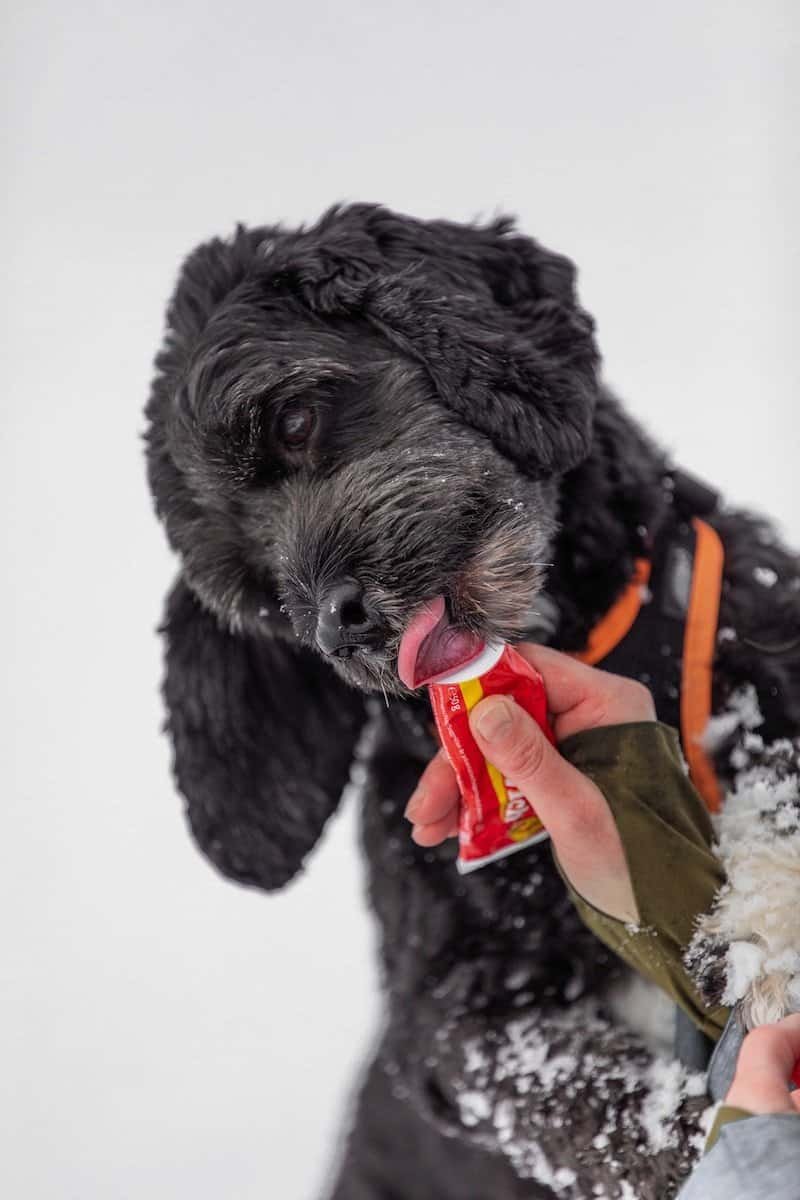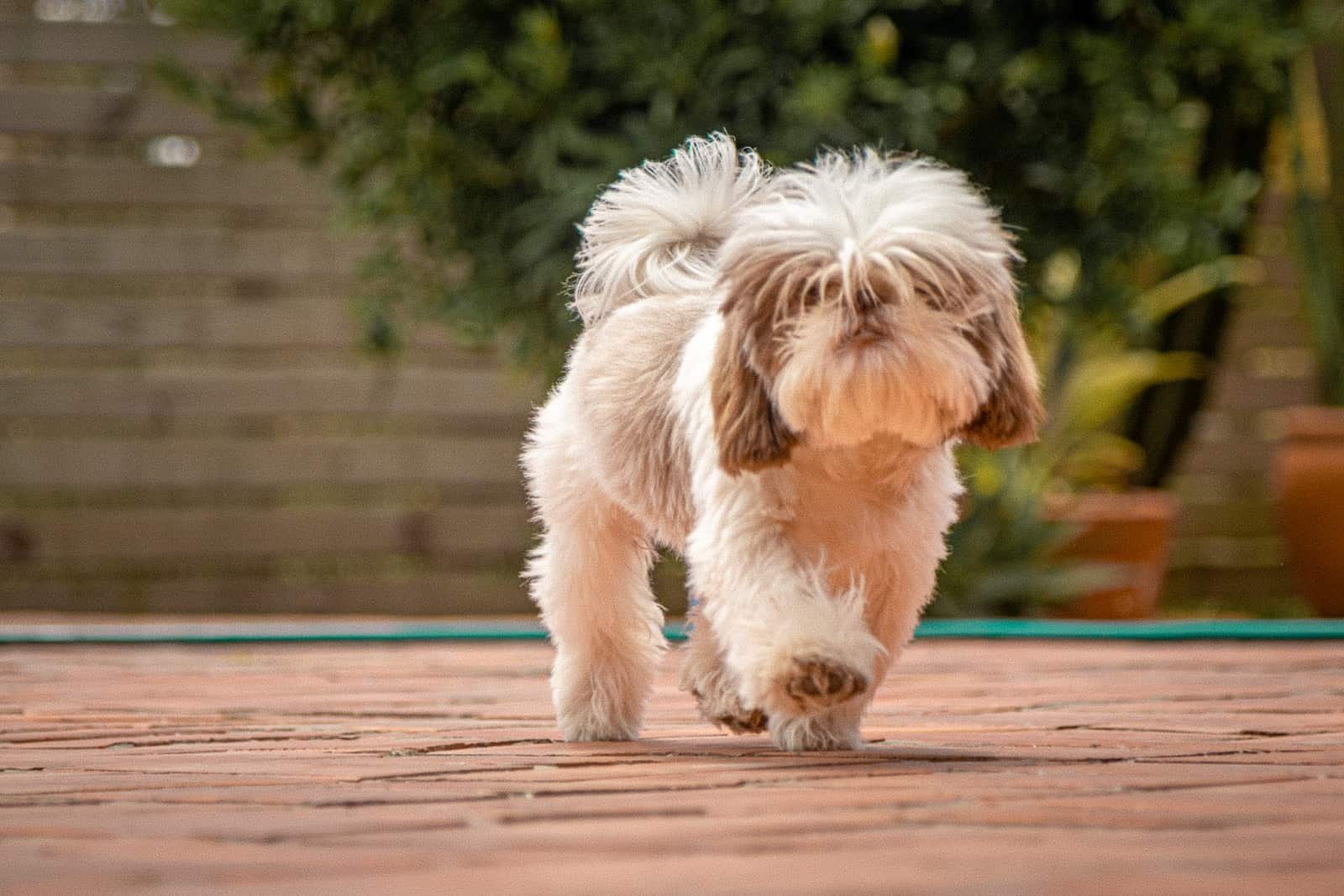
Do you have a senior poodle in your life? Are you looking for ways to provide the best possible care for them in their golden years? As our furry friends age, they require more attention and care to maintain their health and happiness.
Poodles are a breed of dog known for their intelligence, loyalty, and affectionate nature. They come in different sizes and colors, but they all require proper care to thrive. As your poodle ages, they may experience certain health issues, such as arthritis, dental problems, and a decline in cognitive function.
Caring for a senior poodle is not just about providing them with food and shelter, it’s about ensuring their quality of life. In this article, we will share some tips on how to care for your senior poodle, including their diet, exercise, grooming, and medical needs. By following these guidelines, you can make sure your furry companion enjoys their golden years to the fullest.
Benefits of Owning a Senior Poodle
Owning a senior poodle can be extremely rewarding and enjoyable. These intelligent and loyal companions bring an abundance of love and joy to their owners. Senior poodles are incredibly gentle and affectionate, making them the perfect pet for older couples or single individuals who need extra companionship. As these dog’s age, they require more attention and care than younger poodles; however, this can make the relationship with your pet even more special.
Senior poodles benefit from regular exercise, so if you are looking for a pup to keep you active, then this is the perfect breed for you! They also require special diets that are designed specifically for their health needs as they age. By providing your senior poodle with the right nutrition, you can help extend their life span and ensure they remain healthy into their golden years.
Finally, owning a senior poodle is a great way to show your compassion towards animals in need. Many elderly poodles find themselves in shelters or rescue organizations after being abandoned by previous owners because of their advanced ages; adopting one of these dogs will give them a second chance at life with someone who loves them unconditionally!
Quality of Life
Maintaining your senior poodle’s quality of life is essential to their health and well-being. As your pet ages, they may have a decrease in activity levels and need special care to ensure they are still living a happy and comfortable life.
First, it is important to monitor their weight, as obesity can increase the risk of developing various health issues, such as joint pain and kidney disease. Speak to your veterinarian about finding an appropriate diet for your pet that will help them maintain a healthy weight.
Next, provide plenty of mental stimulation with toys that challenge their minds, such as puzzle feeders or interactive toys. This will help keep them engaged and prevent boredom while also helping to reduce common issues, such as separation anxiety or destructive behavior.
Finally, make sure you are staying on top of their dental care by brushing their teeth regularly and providing them with chew toys. Keeping up with dental disease prevention can help extend the life expectancy of your poodle and give them a much happier life in their golden years!
It is important to remember that as your senior poodle ages, they may need extra special care to ensure that they are still living a happy and comfortable life. With proper diet, dental care, and mental stimulation, you can help extend their life expectancy and keep them feeling their best for as long as possible. So don’t forget to give your senior poodle plenty of mental stimulation with interactive toys and puzzle feeders!
Mental Stimulation
Mental stimulation is an important part of caring for a senior poodle. As they age, your pet may have a decrease in activity levels and need extra special care to ensure they remain engaged and entertained. Providing them with interactive toys and puzzle feeders can help keep their minds active and prevent boredom while also helping to reduce common issues such as separation anxiety or destructive behavior.
Regular play sessions with you or other family members can help keep your poodle engaged and active. Be sure to choose toys that are not only stimulating but also safe for them to play with. Finally, look for activities that are tailored to your dog’s needs; this may include scent-based games or puzzle toys that will require them to use their problem solving skills. With the right mental stimulation, you can help extend your poodle’s life expectancy and give them a much happier life in their golden years!
Activity Level
Activity level is an important aspect of caring for a senior poodle. As they age, your pet may have a decrease in activity levels and need extra special care to ensure they remain active and healthy. Regular exercise is essential for senior poodles, allowing them to stay fit and maintain their joint health and their overall quality of life. It is important to create a routine that works best for your pet; this can include daily walks, playing fetch or simply spending some time outdoors exploring with you.
Providing interactive toys such as puzzle feeders can help keep your poodle mentally stimulated while encouraging them to stay active. It is also important to be aware of any signs of pain or discomfort that could come from overexertion; if you notice any signs of pain, it is best to reduce the amount of physical activity and consult your veterinarian as soon as possible. With the right balance of physical and mental stimulation, you can ensure your senior poodle lives a happy, healthy life!
Signs of Pain
It is important to watch for signs of pain in your senior poodle. Pain can be caused by a variety of conditions, including joint and muscle issues, arthritis, and other age-related conditions. Signs of pain may include limping, reluctance to move or be active, excessive panting or whining, decreased appetite, and changes in behavior. If you suspect that your poodle is in pain, it is best to consult your veterinarian for an examination as soon as possible. Your vet will be able to diagnose the issue and provide treatment options to help manage the pain. Additionally, providing a comfortable bed with plenty of cushioning and support can also help your poodle remain comfortable while they recover from their condition. With the right care and attention, you can ensure that your senior poodle remains happy and healthy into their golden years!
Weight Management
Weight management is an important part of caring for a senior poodle. As your poodle gets older, their activity level and metabolism can both decline, leading to weight gain if their diet isn’t monitored carefully. It is best to feed your senior poodle a high quality dry food that has been specifically designed for the needs of aging dogs. Senior dog foods are formulated with all the essential nutrients that your elderly poodle needs at this stage in life, while also being low in fat and calories. Additionally, it is important to keep track of how much you are feeding your senior pet; if they start to gain weight, reduce the portion size accordingly. Regular exercise is also important for maintaining a healthy weight and keeping your senior poodle active. When combined with proper nutrition and plenty of love and attention, you can help keep your poodle happy and healthy into old age!
By providing your senior poodle with the proper nutrition and exercise, you can help them stay healthy and happy into their golden years! But if your pet is showing signs that they may be gaining too much weight, don’t worry – the next section will explore how to manage your senior dog’s weight gain or loss.
Weight Gain/Loss in Senior Dogs
Weight gain or loss in senior dogs can be a sign of underlying health issues. It is important for pet parents to monitor their senior poodle’s weight and adjust the portion size accordingly if they notice any changes in their pet’s weight. If your senior poodle has gained too much weight, a decrease in calorie intake and an increase in physical activity can help promote healthy weight loss. On the other hand, if your senior poodle is losing too much weight, increasing calorie intake with high-quality dry foods and adding supplements to their diet such as fish oil may be necessary to ensure that your pet gets all the essential nutrients they need. Additionally, it is important to look out for signs of pain or discomfort which may indicate a more serious health condition such as kidney disease or joint health issues. Regular visits to the vet are also essential for keeping your senior dog healthy and happy into their golden years!
Proper Nutrition for Senior Poodles
Proper nutrition is essential for senior poodles to ensure they remain healthy and energetic. Senior dog food should be high in quality protein, low in sugar, and contain vitamins and minerals that are beneficial for old age. It is important to consider your poodle’s activity level when selecting a food, as active seniors may require more calories than those with lower energy levels.
Supplementing their diet with omega-3 fatty acids can also be beneficial as this helps reduce inflammation, which can cause pain or discomfort in aging pets. Finally, it is important to always adjust the portion size of their meals according to their weight and activity level. Following these tips will help keep your senior poodle happy and healthy for years to come!
Dry Foods vs. Wet Foods for Senior Dogs
Dry foods and wet foods both have their benefits and drawbacks when it comes to feeding a senior dog. Dry foods provide an easy to store and serve option that is typically more affordable than wet food. However, dry foods are often lower in moisture content, which can be problematic for older dogs as they may not drink enough water to make up for the lack of hydration from their diet.
Wet foods offer higher levels of moisture, which can help keep your pet hydrated throughout the day. Many wet food options also contain more flavorings, which can help stimulate an older dog’s senses and encourage them to eat regularly. Ultimately, pet parents should consider their senior poodle’s individual needs and choose an option that meets those requirements while also providing them with a balanced diet for optimal health.
Health Issues Common in Older Dogs
As our poodles age, they become more prone to certain health issues. Common conditions in senior dogs can include kidney disease, dental disease, weight gain and loss, joint health concerns, and adrenal gland issues. Signs of these issues can vary but often include decreased activity level, pain or stiffness when moving, changes in appetite or weight, and difficulty with grooming or eating. If you suspect your pet is suffering from a health issue, it is important to bring them to the vet for an evaluation.
Early detection and treatment of any condition can significantly improve the quality of life for your senior poodle. Regular check-ups are also essential, as older dogs are more susceptible to developing new diseases or exacerbating existing ones. For long-term prevention of health problems, it is important to maintain proper care routines that involve regular exercise, mental stimulation, and a balanced diet tailored for senior pets. With proper attention and care, your beloved poodle can enjoy a happy life well into their golden years!
With the right care and attention, your senior poodle can stay healthy and happy for many years to come. Tune in next to learn more about kidney disease and how to prevent it in Poodles!
Kidney Disease in Poodles
Kidney disease is a serious condition that can affect the health and longevity of poodles, especially among senior dogs. Kidney disease occurs when the kidneys fail to filter waste products from the blood or produce hormones normally. This can lead to a buildup of toxins in the bloodstream, leading to chronic fatigue, increased thirst and urination, weight loss, and vomiting. Early detection of kidney disease is key to successful treatment and prevention of further damage.
To protect your poodle from kidney disease, it’s important to practice preventative care. Feed them a balanced diet tailored for senior pets, with plenty of lean protein sources like fish or chicken. Make sure they get regular exercise and mental stimulation and annual check-ups at the vet for early detection of any health issues. It’s also important to provide regular dental care since poor oral hygiene can lead to bacteria entering the bloodstream and affecting the kidneys. Finally, if you suspect your pet may suffer from kidney disease, bring them into the vet immediately for an evaluation and proper treatment plan.
Joint Health in Older Dogs
Joint health is an important aspect of care for senior poodles, as changes in the joints can cause pain and mobility issues. As dogs age, the cartilage in their joints wears down, leading to arthritis and other joint conditions that can be painful and limit a pet’s quality of life. To protect your senior poodle from joint problems, it’s important to keep them at a healthy body weight by providing a balanced diet tailored for older pets.
Regular exercise is also key for maintaining muscle strength and joint support. If you notice your pet limping or having difficulty getting up from the floor, it could be a sign of joint pain and should be evaluated by your vet right away. Other signs may include decreased activity level, reluctance to climb stairs or jump on furniture, or grumpiness when touched around the neck or back legs.
If joint pain is present, there are treatments available such as glucosamine supplements, cold therapy, physical therapy, medications, and acupuncture that can help reduce inflammation and improve mobility. It’s also important to provide plenty of comfort items like soft beds or mats so your pet can rest comfortably as they age. With proper care and attention, poodles can remain active well into their golden years!
Adrenal Glands and Fish Oil Supplementation for Senior Dogs
Adrenal glands play a critical role in regulating a dog’s hormones and metabolism. As poodles age, these glands can become less efficient, leading to fatigue, hair loss, and other health issues. To help support adrenal gland function in senior poodles, it is important to provide a balanced diet rich in vitamins and minerals. Fish oil supplementation is another way to help support healthy adrenal function as it contains omega-3 fatty acids, which are essential for proper hormone regulation.
A fish oil supplement can also help reduce inflammation and soothe joint pain because of arthritis or other degenerative conditions. When choosing a fish oil supplement for your senior dog, look for one that has been tested for safety and purity by an independent laboratory such as the International Fish Oil Standards Program (IFOS). It is also important to consult with your vet before giving any supplements to ensure they are the right choice for your pet’s individual needs. With the right care and attention, even senior dogs can enjoy a happy life full of comfort!
Dental Care & Disease Prevention
Good dental care is essential for senior poodles to maintain a healthy mouth and body. As poodles age, their teeth can become more prone to plaque buildup, tartar, gum disease, and even tooth loss. Regular brushing with a soft-bristled toothbrush is the best way to help keep your pet’s teeth clean and healthy. It is important to provide chew toys and treats that are specifically designed to help reduce plaque buildup on the teeth.
Regular dental check-ups with your vet can also help catch any dental diseases in their early stages, which will make them easier to treat. Pet parents should also watch out for signs of pain when brushing or eating, as this could show a more serious oral health issue. With proper care and regular check-ups, senior dogs can enjoy good oral health throughout their life span!
By taking the time to keep up with your senior poodle’s dental care, you ensure they can enjoy a happy and healthy life for years to come. Now that you know the importance of oral health for senior pets, stay tuned for our next section about Regular Dental Care & Brushing Tips for Pet Parents!
Regular Dental Care & Brushing Tips for Pet Parents
Regular dental care is essential for senior poodles to ensure they maintain a healthy mouth and body. Pet parents should brush their pet’s teeth regularly with a soft-bristled toothbrush, at least twice a week. Provide your pet with chew toys and treats that are specifically designed to help reduce plaque buildup on the teeth. It is also important to take your poodle for regular dental check-ups with your vet, as this will help catch any dental diseases in their early stages, which will make them easier to treat.
When brushing your senior poodle’s teeth, use gentle circular motions and a pea-sized amount of toothpaste planned specifically for dogs. Make sure you are brushing all surfaces of the teeth (front, back, top, and bottom) and do not forget the gum line! If possible, try to get your pet used to having their teeth brushed from an early age so they are more comfortable with it as they age.
You can also give your dog dry foods that are designed specifically for senior pets, as this can help reduce plaque accumulation on their teeth as well. Finally, remember that prevention is always better than cure when it comes to any health condition and regular dental care is no exception!
Caring For Your Senior Dog’s Well-Being & Happiness: A Guide For Pet Parents
Caring for a senior poodle can be a rewarding experience, but it can also be challenging. As a pet parent, it is important to understand the needs of your senior dog and provide them with the best care possible to ensure their well-being and happiness.
One of the most important aspects of caring for a senior poodle is providing them with quality nutrition and food specifically designed for their age. Senior dog foods are planned with higher levels of antioxidants, vitamins and minerals that help support healthy aging, as well as joint health. Research portion sizes based on your poodle’s size, breed and activity level so they don’t gain excess weight or become underweight.
It is also important to ensure that your senior poodle gets regular exercise in order to maintain their muscle mass and keep their joints healthy. While walks may not be as long as those when they were younger, try to incorporate low-affected activities such as swimming or playing fetch besides regular walks.
Finally, make sure you provide your senior poodle with plenty of mental stimulation through toys and interactive playtime sessions. This will help keep them engaged mentally and prevent boredom from setting in, which could lead to behavioral issues or depression. By following these simple steps, you can ensure your senior pet has a happy life full of love and joy!
By taking the time to understand your senior poodle’s needs, you can ensure they live a long and happy life. But be sure to keep in mind that standard and miniature poodles may have different care requirements – stay tuned to find out more!
Proper Care For Standard vs. Miniature Poodles
When comparing proper care for standard vs. miniature poodles, there are a few key differences that pet parents should know. Standard poodles, for instance, have a longer life span and may require more exercise than their smaller counterparts. Additionally, due to their larger size and increased physical activity levels, standard poodles will usually need higher calorie diets with higher levels of proteins and fats. Miniature poodles have shorter life spans, require less exercise and benefit from lower calorie dry food diets that are specifically planned for small breed dogs.
In terms of health issues common among both breeds, kidney disease is one of the most serious conditions that can affect senior poodles. To help prevent this condition from developing or worsening in your pet, provide them with regular vet check-ups to monitor their kidney function and watch out for signs of pain or discomfort such as lethargy or decreased appetite.
Dental disease is also a common issue that affects both standard and miniature poodles alike – make sure you provide your pet with regular dental care such as brushing their teeth and using special dental treats designed for dogs to help keep their teeth clean and healthy! Finally, some standard poodle breeds have suffered from adrenal gland issues, so talk with your vet about any concerns you may have regarding this health condition.
By taking the time to understand the specific needs of your standard or miniature poodle, you can ensure they live a long and happy life full of love and joy!
Conclusion:
The golden years of a senior dog can be some of the most rewarding times for pet owners. With proper care and attention, your aging poodle can still enjoy a good quality of life, even if they’re not as spry as they once were.
To enhance your senior dog’s longevity and quality of life, feed them a balanced diet tailored to their age and size, provide regular exercise to keep their joints strong and their muscles toned, offer mental stimulation with toys and activities, and give them plenty of love and affection.
Finally, it’s important to monitor your dog’s weight gain or loss so you can adjust their diet accordingly. By following these tips, you can ensure that your senior poodle has the best chance at living a long and healthy life!





